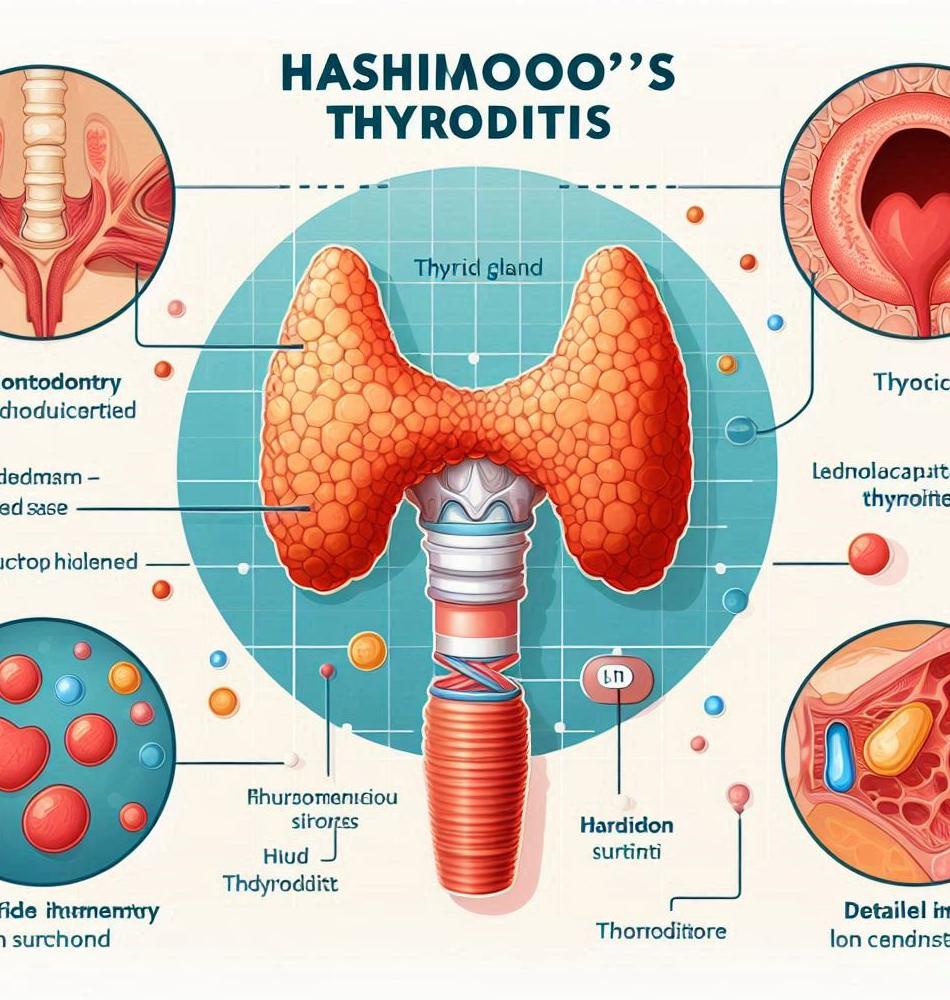Are All Thyroid Conditions Autoimmune? 🦺
Discover the truth about thyroid conditions and whether they are all autoimmune. Understand the different types of thyroid disorders and gain insights into their causes, symptoms, and treatments.
Understanding Thyroid Conditions 🌟
The thyroid gland, a small butterfly-shaped gland located in the front of the neck, plays a crucial role in regulating numerous bodily functions such as metabolism, energy levels, and overall hormonal balance. Given its importance, any dysfunction can lead to a range of health issues. However, a common misconception is that all thyroid disorders are autoimmune in nature. This article seeks to clarify this misconception by diving into the different types of thyroid conditions, their causes, and whether they are indeed autoimmune or not.
Types of Thyroid Conditions 🩺
Thyroid disorders can broadly be classified into two categories: autoimmune and non-autoimmune conditions. Let's explore each type further.
Autoimmune Thyroid Conditions 🤔
Autoimmune diseases occur when the immune system mistakenly attacks healthy tissues in the body. In terms of thyroid issues, the most common autoimmune conditions include:
1. Hashimoto's Thyroiditis 💉
Hashimoto's thyroiditis is the most prevalent autoimmune thyroid disorder. It leads to hypothyroidism, where the thyroid gland becomes underactive and fails to produce enough hormones. Symptoms may include fatigue, weight gain, and sensitivity to cold.
2. Graves' Disease 🔥
In contrast to Hashimoto's, Graves' disease causes hyperthyroidism, where the thyroid gland is overactive and produces excessive hormones. Symptoms may include increased heart rate, anxiety, and unexplained weight loss. Graves' disease is also characterized by the presence of protruding eyes (exophthalmos) due to the inflammation around the eyes.
3. Postpartum Thyroiditis 🍼
This condition can occur in some women after giving birth. It often begins with temporary hyperthyroidism followed by hypothyroidism, which can last for several months or years. Various factors, including hormonal changes during and after pregnancy, can contribute to this condition.
Non-Autoimmune Thyroid Conditions 🌧️
Not all thyroid problems are the result of autoimmune issues. There are several non-autoimmune conditions that can affect the thyroid gland, including:
1. Thyroid Nodules 📍
Thyroid nodules are lumps in the thyroid gland that can be benign or malignant. While the majority of these nodules are non-cancerous and do not cause any symptoms, some can lead to hyperthyroidism by producing excess hormones.
2. Iodine Deficiency 🐟
Iodine is crucial for thyroid hormone production. An inadequate intake can lead to hypothyroidism and goiter (enlarged thyroid). Iodine deficiency is less common in developed countries due to iodized salt but still poses a risk in certain populations.
3. Thyroid Cancer 🎗️
Although less common, thyroid cancer can arise from cells in the thyroid gland. Treatment usually involves surgical removal of the thyroid tissue and, in some cases, radioactive iodine therapy. Symptoms may include changes in voice or difficulty swallowing.
Common Symptoms of Thyroid Disorders 🚑
Regardless of the type, thyroid conditions can present various symptoms that may overlap. Here are some common signs to watch for:
- Fatigue or weakness
- Weight changes (gain or loss)
- Changes in heart rate
- Increased sensitivity to temperature
- Changes in mood, including anxiety or depression
- Hair loss or changes in texture
- Difficulty concentrating
- Menstrual irregularities in women
Diagnosis of Thyroid Conditions 🧑⚕️
If you suspect you have a thyroid issue, visit a healthcare provider for an evaluation. Diagnosis typically involves:
1. Clinical Examination:A physical exam to check for goiter or nodules.2. Blood Tests:Common tests include measuring levels of Thyroid Stimulating Hormone (TSH) and thyroxine (T4).3. Imaging Procedures:Ultrasounds can help visualize the thyroid gland and assess any abnormalities.4. Biopsies (if needed):Fine-needle aspiration may be performed if a nodule appears suspicious for cancer.Treatment Options for Thyroid Disorders 💊
Treatment depends on the specific type of thyroid condition as well as its underlying cause. Here are some general paths of treatment:
1. Autoimmune Conditions 🌐
For autoimmune thyroid issues like Hashimoto's thyroiditis or Graves' disease, treatment may include:
- Hormone replacement therapy for hypothyroidism
- Antithyroid medications to manage hyperthyroidism
- Radioactive iodine treatment for Graves' disease
- Surgery for severe cases
2. Non-Autoimmune Conditions 🔍
For non-autoimmune thyroid disorders, treatments may vary:
- Monitor benign nodules without treatment
- Iodine supplementation for deficiency-related hypothyroidism
- Surgery for thyroid cancer
Frequently Asked Questions ❓
There are several misconceptions surrounding thyroid conditions. Here are common questions people ask:
- Are all thyroid disorders autoimmune?- How can I tell if my thyroid is functioning properly?- What dietary changes can support thyroid health?- Is thyroid disease hereditary?- Can stress impact thyroid function?Conclusion 🌈
Understanding thyroid conditions is vital for recognizing the differences between autoimmune and non-autoimmune types. While autoimmune diseases like Hashimoto's thyroiditis and Graves' disease garner significant attention, many non-autoimmune issues can also impact thyroid health. Regular check-ups and monitoring are crucial for anyone experiencing symptoms, and effective treatments are available for managing both types of thyroid problems. By increasing awareness, one can better navigate the complexities of thyroid health.
.png)






